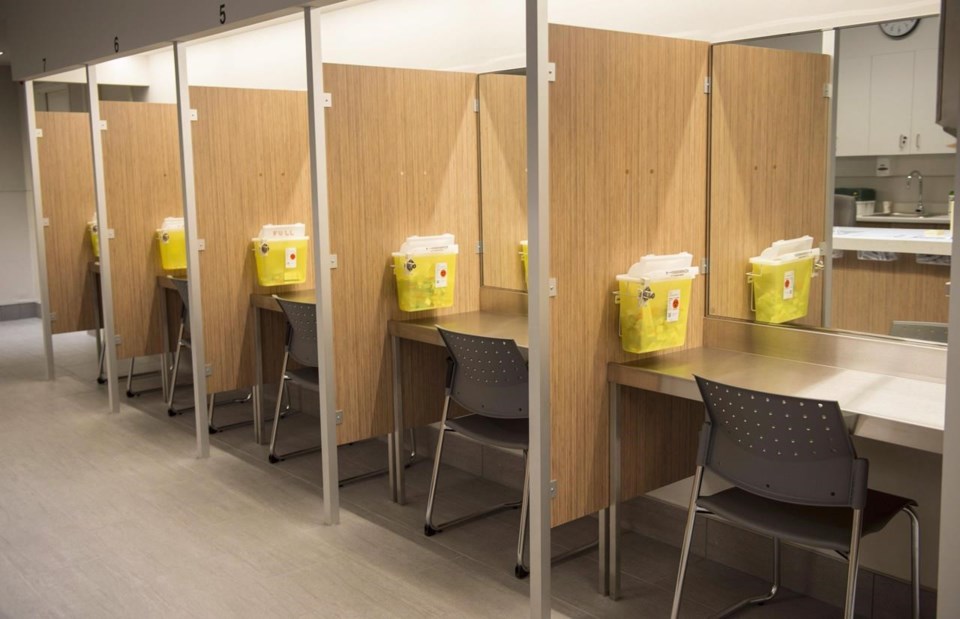Montreal's public health authority is pushing for more supervised drug-use sites, including facilities for drug inhalation, amid an increase in overdoses.
Four Montreal organizations currently offer supervised drug injection, whereby visitors can consume their own substances in the presence of trained personnel. However, those sites lack provisions for people to smoke illicit substances, an increasingly prevalent practice, according to Dr. Benoit Corriveau of the regional health authority.
"At the moment, supervised consumption centres don't allow us to have inhalation rooms," Corriveau said. "But it's becoming more and more common for people to inhale certain drugs, be it fentanyl or others."
Montreal public health reiterated its commitment to supervised drug-use sites on Thursday as it released new data showing what it says was a record number of non-fatal overdoses in the last year. Officials counted 708 emergency interventions in overdose cases at supervised drug-use facilities between August 2022 and July 2023. There were also 547 cases in which first responders administered naloxone, a drug used to treat opioid overdoses.
The tally of suspected overdose deaths — 175 — was higher than in recent years, too: there were 134 deaths between April 2021 and March 2022, and 170 in the same 12-month period between 2020 and 2021.
Jean-François Mary, executive director of CACTUS Montréal — which operates a supervised injection site downtown — says the organization has witnessed the spike in local overdoses. He noted an average of 42 overdoses per month at the downtown centre between April and July of this year, compared to a monthly average of 29 last year.
Montreal public health says the stigmatization and criminalization of drug use, as well as the proliferation of increasingly powerful substances on the illicit drug market, are part of what's driving what it has labelled an overdose crisis.
While Mary says supervised drug-use sites can save lives, he insists government policies, such as drug bans, are contributing to that crisis.
"It's a public health crisis that the government isn't tackling," he said in an interview.
"Across the country, naloxone distribution is on the rise, the number of supervised consumption sites is on the rise … and yet the number of deaths is rising, since the issues are our drug policies."
Montreal public health data show that the vast majority, 77 per cent, of overdose deaths in the last year took place in private residences.
"Unfortunately, people generally use drugs at home," Mary said. "Many use drugs alone, and in these cases, deaths are guaranteed."
He suggested prohibitive drug policies are to blame for those fatalities.
"At the beginning of the last century, people were dying because of adulterated alcohol and prohibition. And now at the beginning of this century, people are dying because of drug prohibition."
This report by The Canadian Press was first published Aug. 31, 2023.
— With files from Ugo Giguère in Montreal.
The Canadian Press

